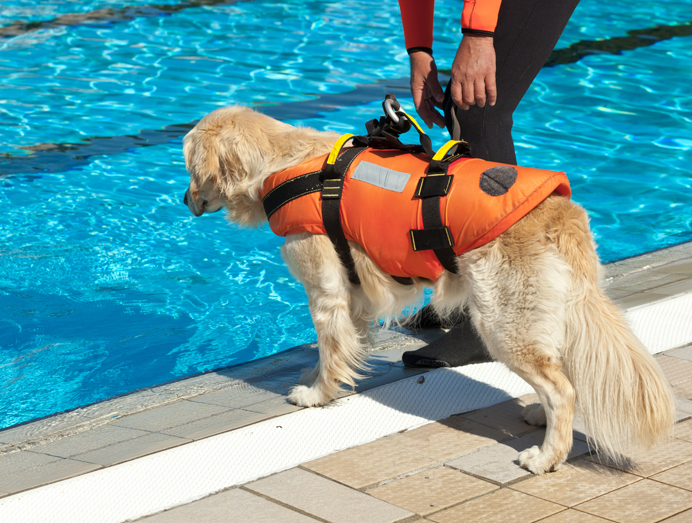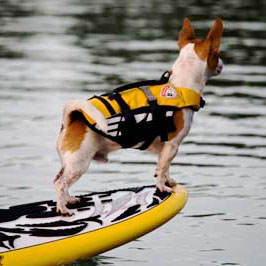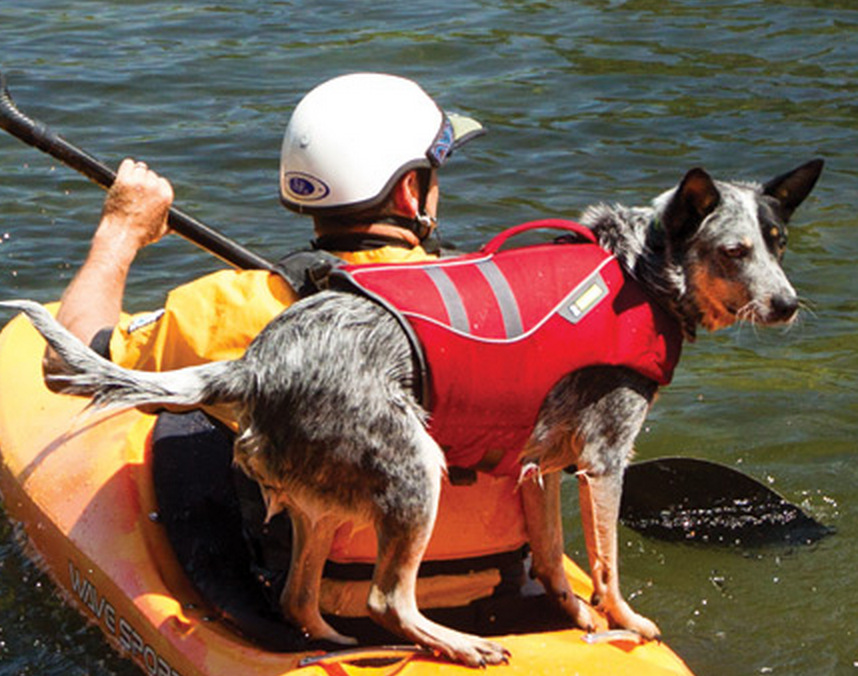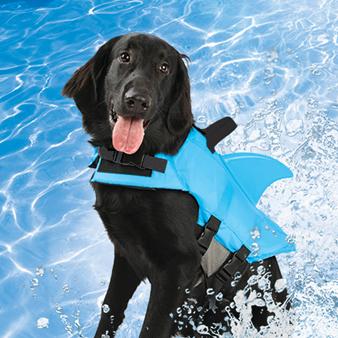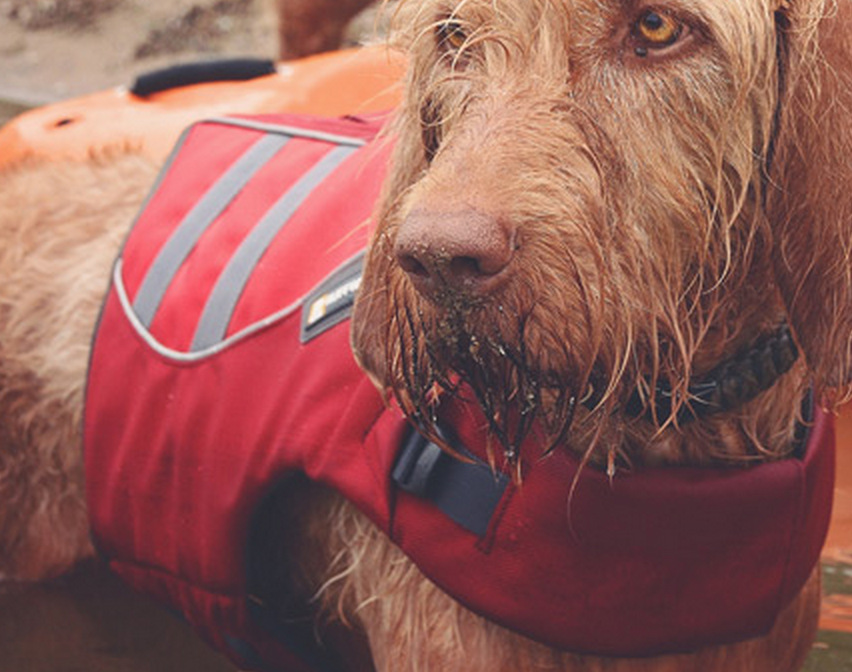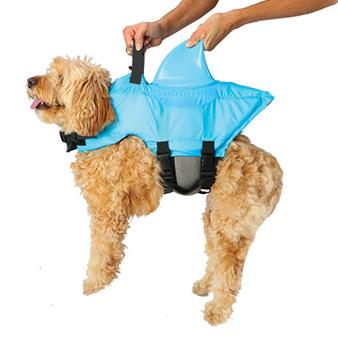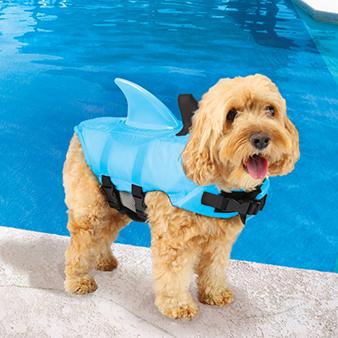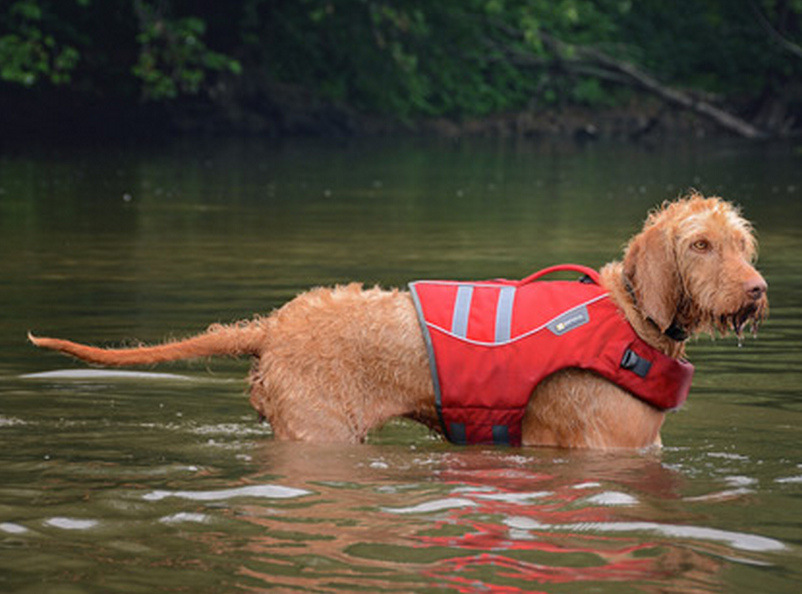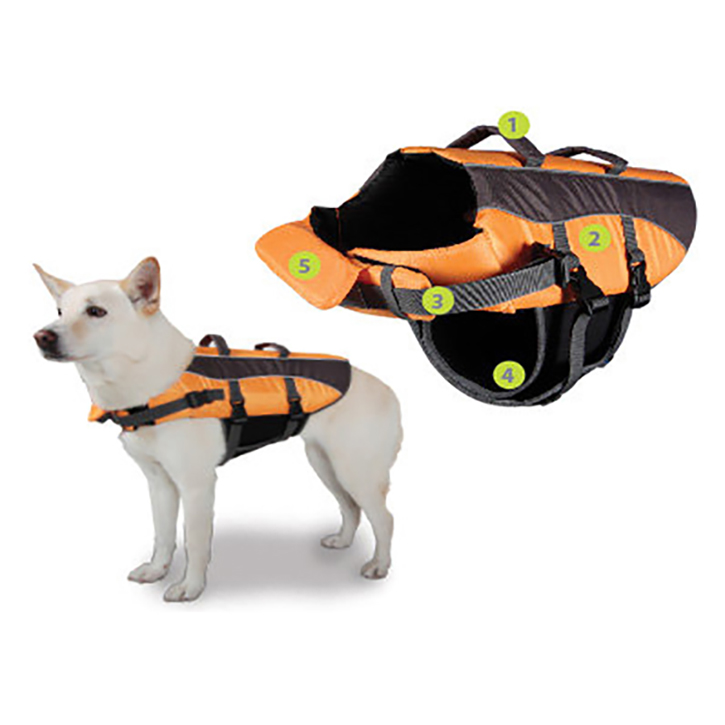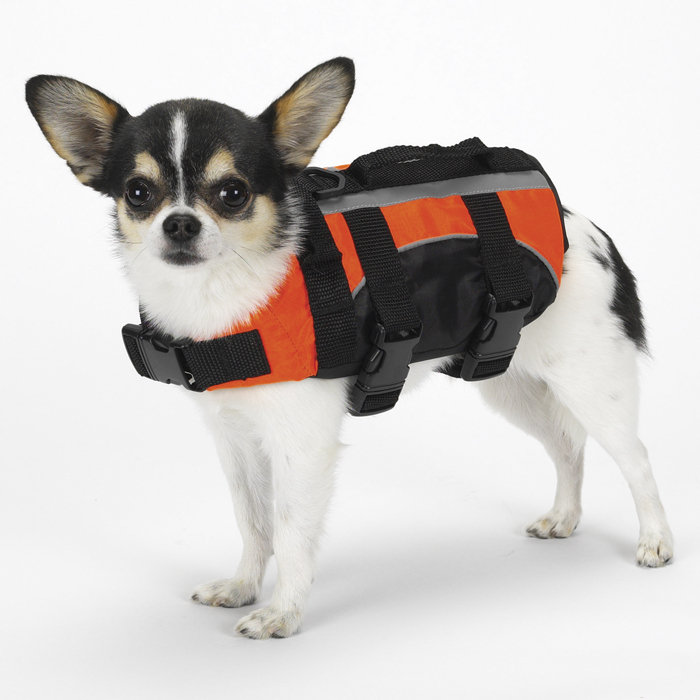Yes, Dogs are fine to swim in chlorine pools as long as the chlorine is at a normal level. Just ensure that your dog is able to drink plenty of freshwater after getting out of the pool.
It is also recommended that pets wear a dog life jacket when going in the water as dogs can easily get tired and worn out from swimming for a short period of time.
Many dogs love a dive in the family pool with their owners during the hot summer months. Many pool owners will tell you that chlorine is quite safe at the levels utilized in swimming pools.
People swim in it and sometimes will swallow some water unintentionally without any harm. The eyes, ears and the nose of a dog are more sensitive than those of human beings and as such might be a bit more vulnerable to chlorine effects.
I wouldn’t want my canine friend to drink huge amounts of chlorine water. Some dogs consider the swimming pool as one big dog bowl to lick up, not like their toilet bowl and you should discourage this behavior.
When it comes to the ears, many infections in puppies that have floppy ears are typically caused by dampness and water, not the chlorine content in the water.
As temperatures go up and a dog’s thoughts turn to swim, most owners across the world are asking themselves if it’s ok for their dogs to take a plunge in the swimming pools.
As dog owners become more knowledgeable and curious about the harmful effects of different chemical exposures in their dog’s day-to-day life, it is natural for individuals to wonder if chlorine can poison pets. Here is what you should know:
Understanding Chlorine and What It Does
When added to some water, chlorine usually breaks into hypochlorite ions and hypochlorous acid. The two chemicals oxidize the microorganisms in the water by breaking the cell wall, which destroys the structures found inside. Without chlorine, swimming pools quickly change to green or even black due to the accumulation of bacteria and algae in the pool water.
Is chlorine poisonous for pets?
Like many other chemicals with the likelihood of being hazardous, the dangers of chlorine contact are dependent on the dose. Pool water contains incredibly dilute amounts of chlorine, which is unlikely to cause any chlorine poisoning in animals or humans.
From a risk management view, a pet is more likely to fall ill from a plunge in a pool full of unknown microorganisms like the amoeba, or a standing lake of water, than they are from diving in a well maintained swimming pool with chlorinated water.
However, dogs should be taught not to lap up chlorinated water since it can affect their digestive system which can make them ill. So to prevent this, you can keep a bowl of clean water near the pool for them to lick up and train them to drink only from there. By doing this, you will avoid any unwanted incidents further down the road.
Handling chlorine tablets
The biggest danger to both people and pets are related to chlorine handling when it’s concentrated before it’s placed in the swimming pool. You should store the chlorine tablets in their original bottles and keep them in a safe place where pets and kids cannot access them.
Chlorine gas can be extremely dangerous when inhaled, and direct exposure to undiluted chlorine can also damage eyes and skin. It would be pretty unlikely for a pet to consume chlorine tablets since the scent is usually unappealing to cats and dogs, but proper storage will eliminate any risks of chlorine poisoning.
What are the dangers of a dog’s exposure to a pool’s chlorinated water?
Consuming chlorinated water might cause minor digestive system irritations, but it might not cause any serious problems for pets. However, pets who like gulping water as they swim should be discouraged as mentioned earlier.
Luckily, most symptoms associated with chlorine are usually minor. Dogs that swim for pretty long periods in pool water with chlorine might show some symptoms of sensitivity, like itchy skin or red eyes.
Pools with high amounts of chlorine might irritate the airways when chlorine gas is released, especially in poorly ventilated spaces.
Is it okay for dogs to swim in chlorine pools? It is but dogs that swim frequently might experience more regular ear infections. While pet owners might wonder if this condition is related to contact with chlorine, recurrent infections are usually related to dampness in the ears than exposure to chlorine.
Your vet can prescribe a drying solution you can use after every swim if your dog is susceptible to recurrent infections.
Is there an alternative to chlorine?
Bromine is usually the most popular chlorine alternative for spa and pool use. Bromine comes with a less pungent scent and less notorious bleaching side effects when compared to chlorine.
Individuals who find chlorine pretty irritating to their skin or eyes say that bromine solution is less likely to bring these symptoms. Although some people might prefer bromine due to its milder properties, it’s more costly than chlorine and less stable as well when exposed to direct sunlight, making it a poor selection for outdoor pools.
Pool care professionals can advise you on the best selection for your situation and setting.
Other pool safety threats for dogs
One of the most significant health risks for any pet when it comes to swimming is drowning. Dogs can drown in pools if they are not taught how to use the pool steps properly.
Before you allow any of your pets around the swimming pool unsupervised, make sure you have taught them well how to utilize the steps. That could save their lives since dogs can become helpless when attempting to climb out of the pool.
Although most people mistakenly assume the natural paddling behavior of a dog means that all dogs are safe in the water, dogs can tire, panic, and drown in a body of water, whether it’s chlorinated or not.
Pet owners should supervise their pets always when swimming, which enables you to see any minor issues before they become serious ones, whether it is exhaustion, red eyes or a cough.
With a little attention and monitoring to your dog’s behavior, there is no reason you cannot all enjoy an exciting summer dip.
Safety Rules
So, Is it okay for dogs to swim in chlorine pools? Apart from where your fur friend swims, how it learns to swim is even more important. Your dog might be incredibly interested in joining your family in the pool, but first, you should build confidence in the dog around the swimming pool.
Most dogs are fearful when they enter the pool water for the first time. Be patient and praise your canine friend each step of the way. Once you make it a pleasant experience your dog will swim well in no time. Dogs are natural swimmers, which mean you don’t have to train the pet to swim.
Just teach your dog to jump safely in the pool. You can either toss their favorite toy in the swimming pool or escort it over the side.
Regardless of how well your fur friend can swim, never leave it unsupervised in a swimming pool. The dog might need your help if it is in any trouble and cannot bark to get your attention.
With the right guidance, you and your dog can have a lot of fun in the swimming pool and if you’re lucky he can also teach you the right way to do a dog paddle.
Sanitation
A dog’s skin is incredibly sensitive. Since chlorine is typically an alkaline solution just like bleach, you should give your fur friend a good bath after swimming and clean their fur correctly, so there is no skin irritation.
Some pool owners prefer using non-chlorine chemicals like bromine which may be less hazardous to pets. In this case, you can give your pet a quick spray using the hose to rinse off any chemicals after swimming and dry the ears with a dry towel or utilize a blow dryer to ensure they are moisture free.
However, be wary as bathing and washing dogs regularly can break down most of the natural oils found on their fur and skin. Without these oils, your pets can get irritated skin and a dull coat.
Conclusion
Allowing pets to use family swimming pools is nowadays becoming increasingly popular among most pool owners as the warm season approaches.
So, Is it okay for dogs to swim in chlorine pools? Yes, while you can allow your fur friend to use the swimming pool at any time, it’s vital to take precautions to make sure that no harm comes to your loved pets due to the contents and the design flaws of the swimming pools.
Although you may have concerns about how a swimming pool can adversely affect the health of your dog, rest assured that the health will typically be better in the long run.
Just keep in mind that your fur friend can always reap the numerous health and lifestyle benefits that come with using a swimming pool. A pool offers an enclosed and safe space for dogs to get the exercise they need with a pretty low impact on their joints, which is a great factor to consider for senior dogs who may suffer from some joint pain and arthritis.
Also, in the same way floating in a swimming pool while taking a drink can be what you required to relax, several laps around your pool and resting on the top step is the best vacation for your pup.
Ultimately, a swimming pool is a good way for you to relax and exercise for your fur friend that you can supervise as you float leisurely and soak up some rays.
If you are planning to introduce your dog to your pool, this guide will help you keep your best friend safe and happy.
